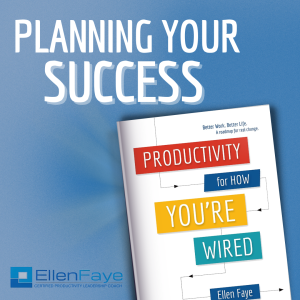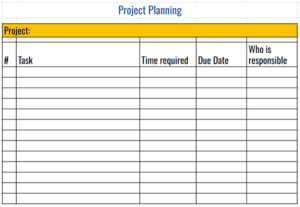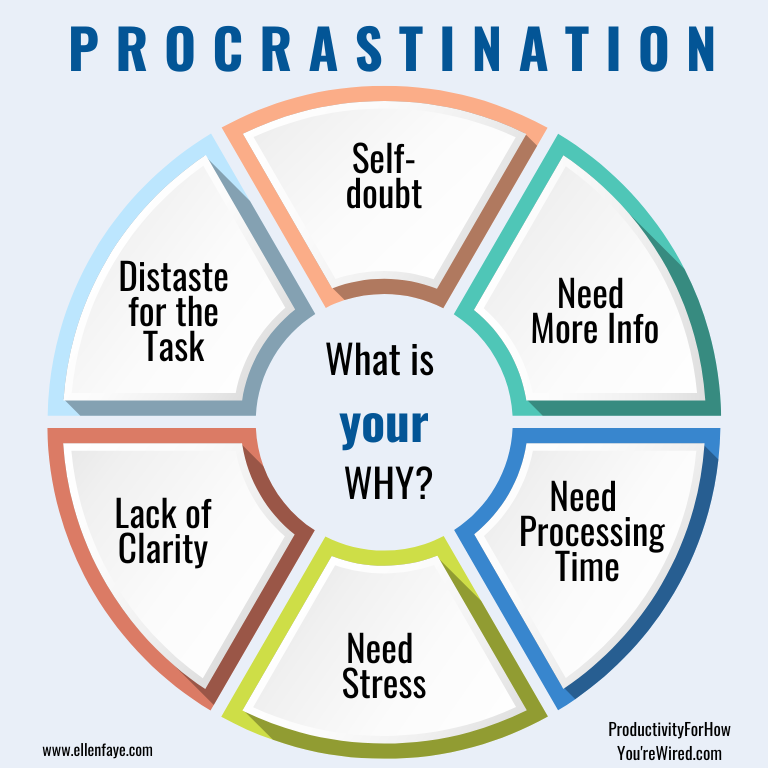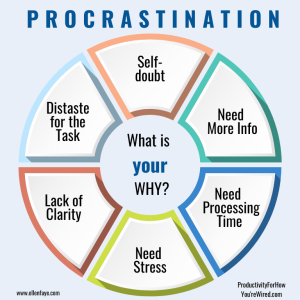05 Mar How To Actually Do Your Important Work
What if you could set yourself up to do your focused, deep, important work successfully? What does it take for you to get into flow? Why is it so hard to get started?
Deep focused work carries a fairly heavy cognitive load. To get results, you need to be fully present. That doesn’t just happen. Many productivity pros say it’s critical to do this work at the time your mind is sharpest. But THERE IS SO MUCH MORE!
As important as it is to understand your body clock, it is equally, if not more important, to identify the conditions YOU need to be successful doing your Focus Work. Being specific and identifying and integrating these conditions will help you get into flow.
What are Your Conditions for Success?
Timing
- You don’t have to wake up early! Embrace your body’s natural rhythms and maximize your best times. If you are an early-bird who likes to wake early, great. However, if you’re a night-owl, don’t feel badly about it and don’t push yourself to be someone you’re not. The people who say “to be successful you have to wake up at 5 a.m.” are people who like to wake up at 5 a.m.
- If you do your best work at the crack of dawn, or 4 p.m., or 11 p.m., it doesn’t matter. What matters is that you own it and PLAN to do your Focus Work when you can get it done!
Other Work
Do you need to jump in when your mind is clear and uncluttered, or do you need to clear the decks in order to focus? Consider the following:
- Loose Ends – Do you need to tie up any loose ends that will take you off task prior to beginning your Focus Work?
- Email – Are all important emails addressed? Would it be helpful to schedule email time before or after Focus Work to support turning it off during?
- Social Media – Would it be helpful to schedule social media time before or after Focus Work to support turning it off during?
- Information and Data – Do you have all the information you anticipate needing so you don’t have to stop as often? Every time you go to the internet to look something up, you are opening yourself up to the temptation to go off task.
Audio Interruptions
- Notifications – What if you turned off all notifications, pop–ups, and interruptions on your computer? There are apps that limit web–surfing and social media if needed.
- Phone – Can you silence your phone or put it on do not disturb? Better yet, can you put it out of reach?
Environment
- Digital Clutter – Can you close windows, apps, and other distracting technology?
- Physical Clutter – Would you be less distracted if your workspace was cleared of clutter?
- Music – Would you be more attentive if you played music?
- Location – Do you focus better in an environment where you won’t be easily interrupted, or in settings with background noise and activity?
Self–Care
- Movement and Meditation
- Will exercising or meditating before starting your Focus Work result in better outputs? (Test it!)
- Sleep
- Are you rested? How much sleep do you need? Are you getting it?
- What do you need to do to ensure enough sleep? Schedule bedtime? Limit screen time? Set a reminder that it’s time for lights out?
- Nutrition and Hydration
- What foods help you concentrate?
- What foods give you brain fog?
- Does coffee help or hurt? How much? With or without sugar?
- Do you have healthy snacks or chewing gum handy to keep the brain online?
Breaks
- Will a walk, nap, or meditation support your outcome?
- Are you more effective taking a break after a certain amount of time or would it be more effective for you to take a break after reaching a certain target in your work?
- Is it helpful to schedule breaks using an app so you know you can’t stop working until the outside tool says you can?
- Would you benefit from an app that tells you to get up and move?
Communication
- How can you signal to your coworkers you shouldn’t be interrupted?
- Can you put a sign on your door or cubical?
- Can you wear headphones?
- Can you inform your colleagues you are doing Focus Work and not to interrupt you unless it is really important?
- Is there any good reason to NOT show your calendar as busy?
There are many variables to consider. The sooner you learn your personal conditions to do your important focused work, the better chance you have to actually do it!
This is an excerpt from Chapter 11 of my new book Productivity for How You’re Wired available on Amazon. Many templates are included via the time tools link discussed in the book.










